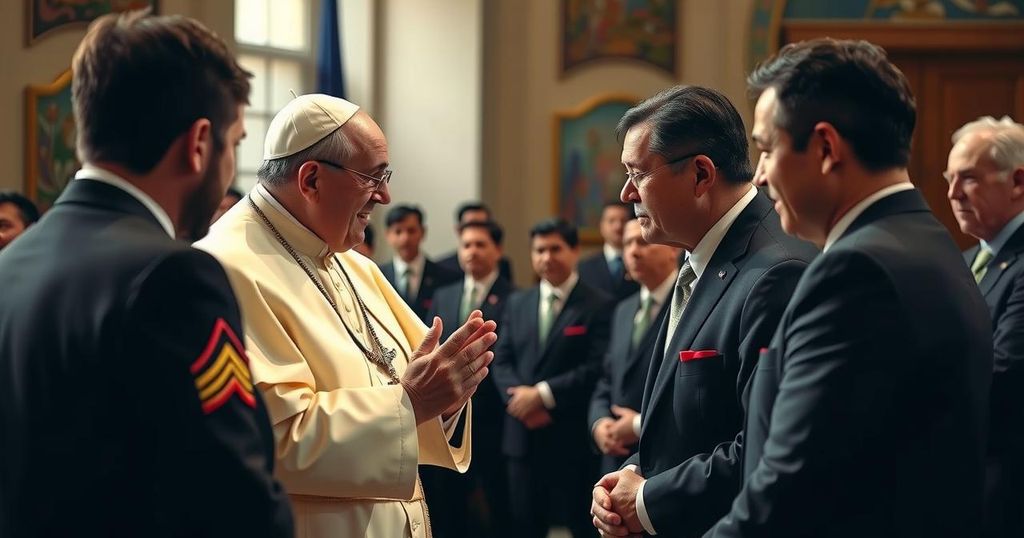Pope Francis Highlights Dialogue’s Role in Preventing War Between Chile and Argentina
Pope Francis commemorated the signing of the Treaty of Peace and Friendship between Chile and Argentina that ended a border dispute in 1984. He emphasized the importance of dialogue and cooperation in resolving conflicts and criticized the hypocrisy of nations that promote peace while investing in arms. The Pope called for renewed efforts towards peace and friendship globally, invoking God’s blessings to guide these endeavors.
On November 29, 1984, Chile and Argentina reached a historic milestone by signing the Treaty of Peace and Friendship, which amicably resolved a long-standing territorial conflict concerning the Beagle Channel. This treaty, pivotal in maintaining regional stability, was brokered with significant involvement from the Holy See, particularly by Pope St. John Paul II, who played a central role in the negotiations that averted potential military confrontations in 1978.
During a recent commemorative ceremony in the Vatican organized by the Chilean and Argentinian embassies, Pope Francis underscored the importance of dialogue in achieving peace. He commended the commitment of both nations throughout challenging negotiations and advocated for their example as a blueprint for resolving conflicts globally. The Pope reiterated that the values of peace and friendship embedded in the treaty should inspire current efforts to address ongoing global issues.
Reflecting on themes of justice and the resolution of disputes, Pope Francis emphasized the necessity for nations to prioritize dialogue, particularly amidst rising global tensions and inequality. He cited injustices and the climate crisis as exacerbating factors in contemporary conflicts. The Pope called for collective action rooted in friendship with God, as this connection fosters peaceful relationships among individuals.
Furthermore, he responded to a joint declaration by the Bishops of Argentina and Chile, expressing gratitude for the peaceful resolution beneficial to both nations. The Pope expressed hope that the spirit of collaboration might promote initiatives to tackle pressing social and environmental challenges across Latin America and the globe. However, he criticized the contradiction of nations that advocate for peace while simultaneously investing in armament.
In concluding his remarks, Pope Francis invoked divine blessings upon Argentina, Chile, and all nations endeavoring towards peace, invoking the intercession of Mary, Queen of Peace. His address served as a poignant reminder of the enduring significance of dialogue as a means of conflict resolution.
The article discusses the Treaty of Peace and Friendship signed between Chile and Argentina on November 29, 1984, which resolved a border dispute over the Beagle Channel that had nearly led to armed conflict. The negotiations were facilitated by Pope St. John Paul II and the Holy See, highlighting the role of dialogue in preventing war. This event has been commemorated by Pope Francis, who uses this historic example to advocate for peace and resolution of conflicts in the contemporary world.
Pope Francis’s reflections on the Treaty of Peace and Friendship reaffirm the vital role of dialogue in conflict resolution. His call for nations to emulate the cooperative spirit demonstrated by Chile and Argentina serves as a beacon of hope for addressing modern disputes. The Pope’s criticism of hypocrisy in peace advocacy while pursuing military expansion underscores the need for genuine commitment to peaceful negotiations, ultimately leading towards a more harmonious global community.
Original Source: www.vaticannews.va




Post Comment